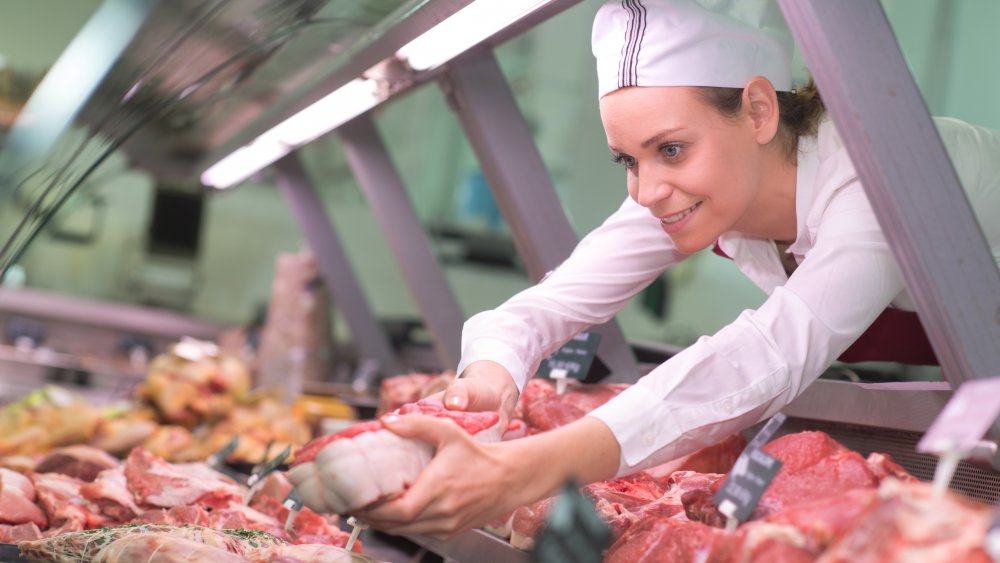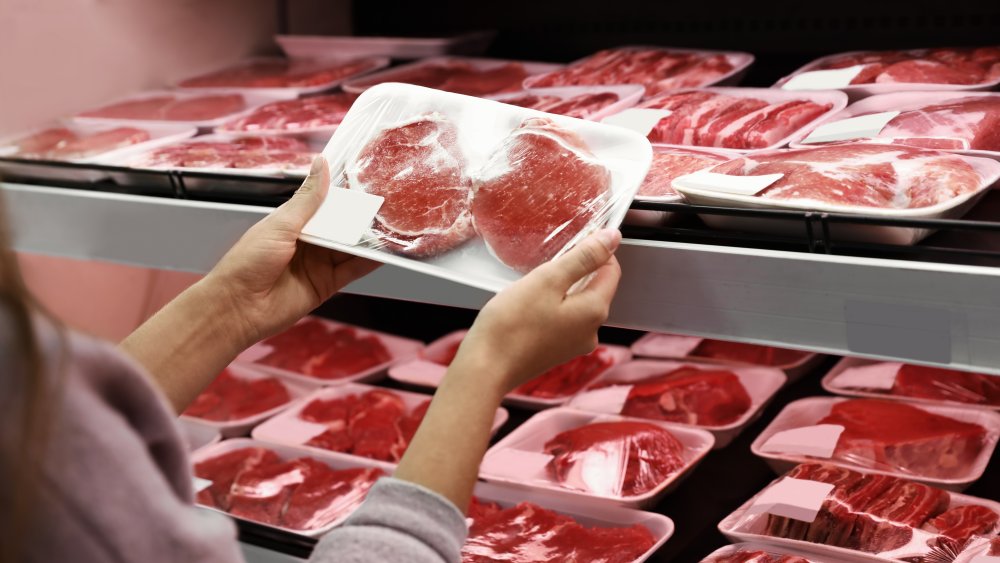Meat Supplier Breaks Down The Real Reason We're Still Seeing Meat Shortages
Where's the beef? And the pork, and the poultry, and all of those other carnivore must-haves that you just can't barbecue without? In the wake of the pandemic, meat shortages have become a reality in the U.S. and retailers including Costco are now limiting how much of those plastic-wrapped packets of juicy protein you can take home with you. With many cases of coronavirus isolated to meat factory workers and plants being shut down temporarily (per CNN), we all know we can't stockpile sausage like we used to in the pre-Covid days, but what's less clear is why it happened in the first place, as well as why it's still happening– and that's causing some of us to panic.
One thing that's not happening is a decrease in a number of livestock — there are still plenty of cattle and pigs. Yet beef and pork production were down by 30% in May (via Today). In an exclusive interview with Mashed, Ariane Daguin, founder of sustainable meat supplier D'Artagnan, talked through the complexities that have led to more meatless Mondays than many of us might have wanted.
Meat processing plants have been shutting down
Americans eat a lot of meat, and businesses have always risen to the occasion to make sure no one has to eat beans for dinner. To meet this meat demand, factories were at max capacity, with workers in close proximity to one another, Daugin explained. Once coronavirus hit, it was the perfect recipe for disaster. When factories closed to stop the spread of the virus, the animals weren't able to be processed, "so we saw sporadic supply shortages of commodity meat exacerbated by the panic buying at the beginning of the crisis," she said.
If you're worried you won't be able to eat steak for dinner again — or at least, not as much as you'd like — fret not. You don't need to acquire a taste for tofu. "We will not run out of meat," Daugin affirmed. "While there was some panic buying taking place at the beginning of the pandemic, the supply is there, especially in regards to ethically raised meats," she added, referring to meat that comes from animals raised on farms, where both they and the meat workers have more room to roam.

